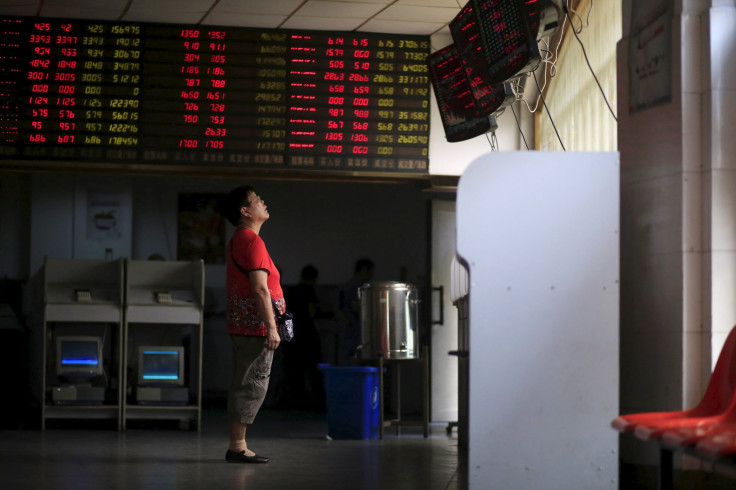Europe, Asian Markets Mixed Ahead Of US Federal Reserve Meeting; US Stock Futures Slightly Up

Update as of 7.00 a.m. EDT: European markets continued to witness wide fluctuations Tuesday as anticipation built up over one of the most eagerly awaited U.S. Federal Reserve announcements in recent years. Investors worldwide are watching the Fed to see if it will hike interest rates Thursday -- for the first time in nearly a decade.
The pan-European STOXX 600, which opened slightly higher before falling into the red, was trading 0.3 percent higher. Germany's DAX was up 0.5 percent and France's CAC 40 was trading up 0.9 percent. London's FTSE 100, which fell nearly 1 percent during the day's trade, pared its losses and was trading flat.
U.S. stock futures also recovered slightly, pointing to a slight opening rise for the Dow Jones Industrial Average and the S&P 500.
Original story:
China’s Shanghai Composite index led a day of choppy trade in Asian bourses Tuesday, closing down 3.5 percent amid persistent fears over the health of the world’s second-largest economy. Investors also remained cautious ahead of a crucial U.S. Federal Reserve announcement Thursday, when the central bank is expected to reveal its decision on hiking interest rates for the first time in nine years.
In addition to the Shanghai Composite index, which reported its biggest two-day loss in three weeks, the smaller Shenzhen Composite index also closed in the red, down nearly 5 percent. Hong Kong’s Hang Seng and India’s benchmark Sensex were both trading down over 0.3 percent.
“[China’s] economy has not shown signs of a pick up after a series of cuts in interest rates and reserve requirements, while expectations about yuan depreciation are still there,” Zhang Haidong, chief strategist at Shanghai’s Jinkuang Investment Management, told Bloomberg. “Yuan denominated assets face downward pressure. The market is still weak.”
Elsewhere in Asia, Japan’s Nikkei 225 ended up 0.3 percent, trimming its early gains made after the country’s central bank announced that it was leaving its monetary policy -- calling for 80 trillion yen ($666 billion) in annual asset purchases -- unchanged. The Bank of Japan also added that slowing demand in emerging economies was hurting the country’s exports and production.
“There was not a strong expectation for BOJ action, but there was a market reaction after the announcement, showing some were positioning for it,” Ayako Sera, senior market economist at Tokyo’s Sumitomo Mitsui Trust Bank, told Reuters.
Meanwhile, European markets opened higher Tuesday but rapidly pared their gains. The pan-European STOXX 600, Germany’s DAX and France’s CAC 40 were all trading nearly flat after rising 0.4 percent after the open. London’s FTSE 100, which opened flat, fell nearly 1 percent during the day’s trade.
U.S. stock futures also fell Tuesday. The S&P 500 futures indicate that the Wall Street index is poised to open 0.2 percent lower.
The U.S. dollar, which has surged 20 percent against the yen and 17 percent against the euro in the past two years, is heading toward its steepest two-year rise in 30 years, Bloomberg reported Monday, citing the U.S. Federal Reserve's dollar index. The dollar index, which measures the U.S. currency against a basket of 26 others, has climbed more than 18 percent since the end of 2013 -- putting it on track to its sharpest advance since 1984.
© Copyright IBTimes 2024. All rights reserved.






















